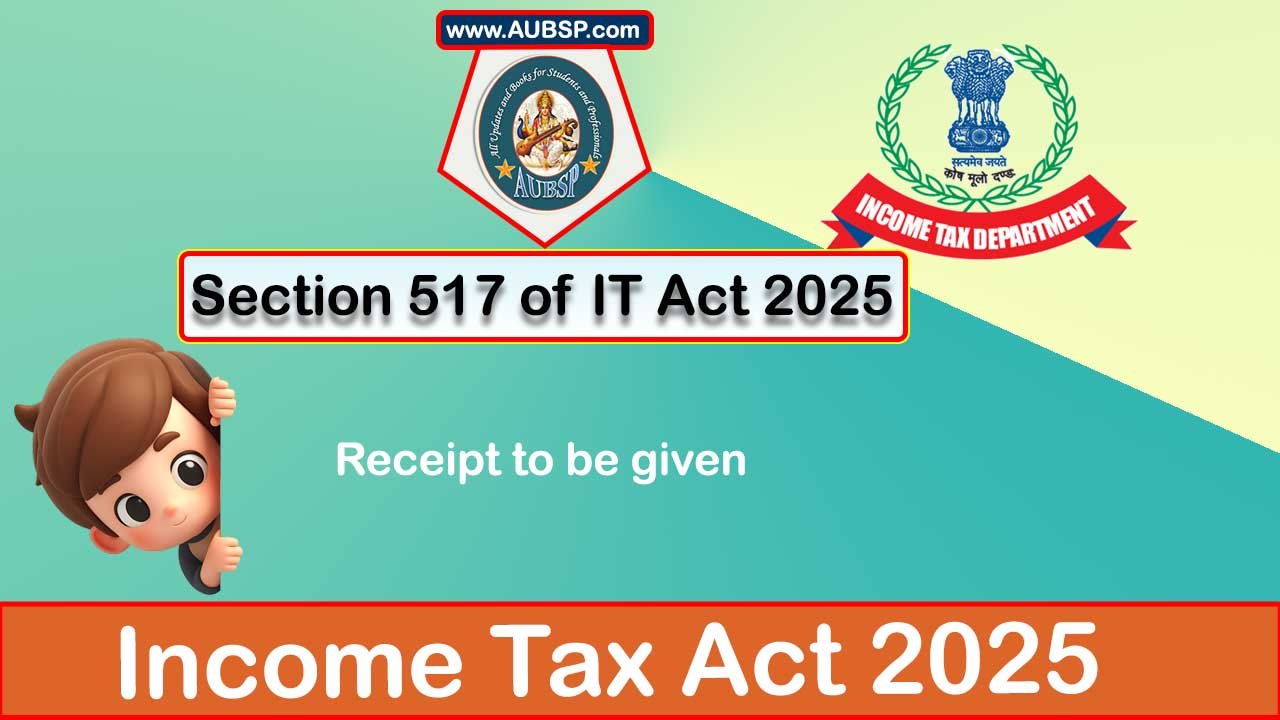Receipt to be given
[Section-517 as per the Income Tax Act, 2025 (this Act) w.e.f. 1st April, 2026.]
A receipt shall be given for any money paid or recovered under this Act.
FAQs: Income Tax Act 2025 – Section 517
FAQs related to Section 517 for Tax Year 2025-26 regarding receipts:
1. What is Section 517 of the Income Tax Act 2025?
Section 517 mandates that a receipt must be issued for any money paid or recovered under this Act.
2. When does this provision come into effect?
This provision is effective from April 1, 2026, for the tax year 2025-26.
3. Who is responsible for issuing the receipt?
The tax authorities or the entity receiving the payment are responsible for issuing the receipt.
4. What details should the receipt contain?
The receipt should include:
- Name of the payer
- Amount paid or recovered
- Date of transaction
- Purpose of payment
- Official stamp/signature (if applicable)
5. Is it mandatory to issue a receipt for every payment?
Yes, as per Section 517, a receipt must be provided for any money paid or recovered under the Act.
6. What happens if a receipt is not issued?
Failure to issue a receipt may lead to penalties or legal consequences as prescribed under the Act.
7. Can receipts be issued electronically?
Yes, electronic receipts are valid if they comply with the rules set by the tax authorities.
8. Who should keep the receipt?
Both the payer and the recipient should keep a copy of the receipt for record-keeping and audit purposes.
9. How long should taxpayers retain their receipts?
Taxpayers should retain receipts for at least six years or as per the tax department’s record-keeping guidelines.
10. Does this apply to both individuals and businesses?
Yes, all taxpayers, including individuals, businesses, and organizations, must comply with this rule.
Section 517 of the Income Tax Act 2025, effective from April 1, 2026, mandates that a receipt must be issued for any money paid or recovered under the Act. The receipt should include key details like the payer’s name, amount, date, purpose, and an official stamp or signature if required.
Both electronic and physical receipts are valid, and taxpayers must retain them for record-keeping. Non-compliance may result in penalties. This provision applies to all taxpayers, including individuals and businesses, ensuring transparency in tax transactions.


